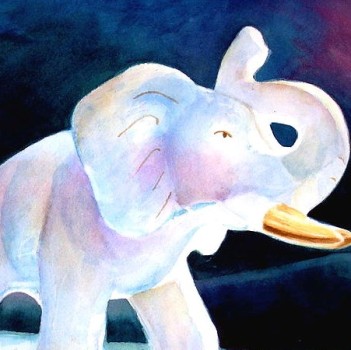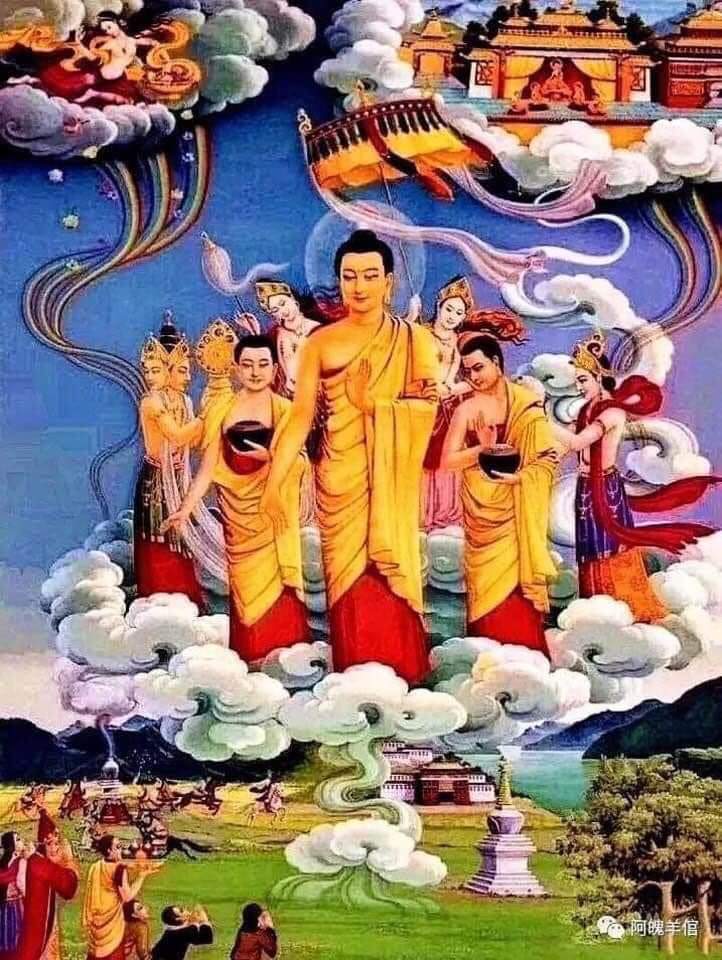Every man wishes to lead a life of freedom, that he is without restriction and bondage.
This is more so for a monk who with one alms-bowl receives the offerings of all people.
He travels alone for millions of miles, standing high above the mountain summit, walking in the deep ocean.
His thatched grass shoes are all broken, walking pass the many high cloudy mountains.
A monk leads a life of ease, among the cloudy mountains and the flows of water.
Indeed, I think this is the way a left home brother has been looking forward to, from the ancient time until now.
But truly speaking, what is freedom?
What are the criteria that we will arrive at the state of freedom?
If we do not have right understanding on this, even though we have brought forth the vow to leave the home life, the result is often negative.
Here are a few guidelines for the young left home brothers to ponder on.
1.
Freedom is in our mind, not in the environment.
If you think the environment is not good as such you have lost your freedom, you will try to change the environment, hoping that you will be free one day.
This is walking into a dead end.
For example, a man is under lock and chain, that he is not free to move about.
Instead of breaking down the lock and chain, he complains that the house is too small, that his freedom is hindered.
So, with the lock and chain he tries to build a bigger house, carrying the tiles and bricks.
Then he will be fine, living in a spacious house.
But let us not discuss the process of building that house, with his locks and chains, he is adding suffering to himself.
Even if he manages to build a big house, he is still in lock and chains, there is still not a slightest increase in freedom.
Our mind resembles the locks and chains,
The environment is the house.
If we are bound by the locks and chains of our mind, there will never be any freedom for us.
Talking about the environment, it is very spacious.
So, if we desire for freedom, we must first unlock the locks and chains in our mind. This is the only correct way.
2
Freedom is here, not somewhere else.
Some people feel that his department is not good, or his group is not good. He is unsatisfied with his place, his job.
They though with a change, something good will happen.
We cannot deny that the environment will also affect us.
But if we can be calm at ease in accord with condition, we will obtain freedom here.
But if we cannot live at peace with the surrounding as we want to choose this and that, it is very difficult to have freedom.
3.
Freedom is in the present moment, not in future
Some people are always looking forward to the future.
They said, ‘I do not have freedom now.
But tomorrow or in future I will have freedom.
When I am rich, when I have a house and so on,,,,, I will then be free.’
In this way they spend the whole life, hoping for something and ending in despair.
Let us take the analogy of a man who has lost his memory.
He thought he had lost his legs and he ran wild, looking for his legs.
He feels that if he were to walk further, he will find his legs.
So, he starts to run as fast as possible.
But he cannot find them.
In fact, what he needs to do is to stand still, his legs will be there, supporting his whole body.
What is the necessity to run here and there?
How can he find his legs?
4
Freedom is off the shelf, always available.
It is unnecessary to look for freedom
‘off the shelf’ means it exists originally.
It can be enjoyed.
It is unnecessary to create as it fills up everywhere pervasively.
Why should you go to look for it?
It is like empty space.
Using the Dhyana words, ‘Who is keeping you in bondage?’
‘Since no one is tying you down, aren’t you a free man?
The problem with us is we are sunken into the attachment of a self.
It is the self that bind us up.
As long as we do not let go of this self, we cannot find freedom.
5.
Freedom is in the Buddha, not in the man.
The Buddha has attained great ease, a man is not at ease.
The Mind, the Buddha and living beings are without any differences.
As long as we keep our mind in the Buddha, we will be free at ease.
This is the only way for a man to obtain the ultimate freedom.
In this present moment we recite Namo Amitabha Buddha, we seek to be born in the Pure land by relying on the strength of the Buddha’s Vows, we will always be calm at ease, in whatever situations.
This is the greatest freedom.
We obtain freedom wherever we go, at whatever time.
There are people who recite Namo Amitabha Buddha, who say they have profound faith in the Dharma Door of Amitabha recitation, yet they are still complaining that the environment is not good enough.
These are the people who are still looking for freedom everywhere.
It is like a man who is carrying a lantern to look for lights.
I hope all of you will deeply understand the meaning of the Dharma, moisturize your mind in the Dharma water.
When you heart is at ease, you can really enjoy freedom.
There are a few more guidance on freedom:
A selfish man cannot have any freedom. Only a man who wishes to benefits others will attain freedom.
An arrogant man cannot obtain freedom. Only a humble man will obtain freedom.
A man cannot obtain freedom when he only cares about himself. Freedom comes when we love others.
Harbouring a fake mind does allow freedom to come in. Freedom is obtained with an honest mind.
Stubbornly attached to something one will have no freedom. Living in accord with conditions is the way of freedom.
Running away from our responsibility we also lose our freedom. Freedom is achieved when we are willing to take over the responsibility.
A Dharma teaching by Dharma Master Shi Jing Zong on ‘On a Life of freedom’ for the Sangha.


